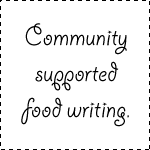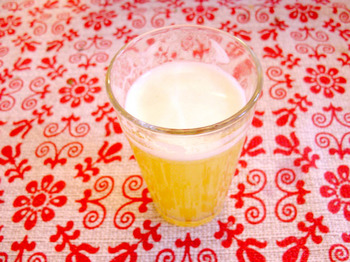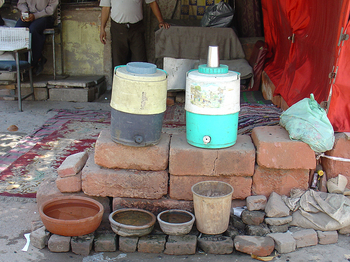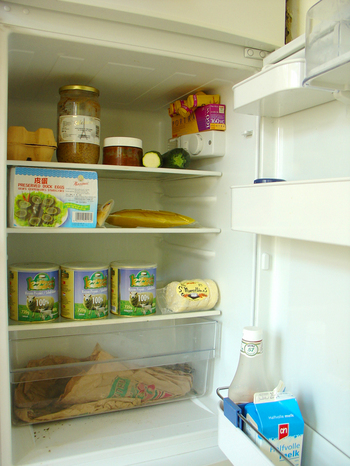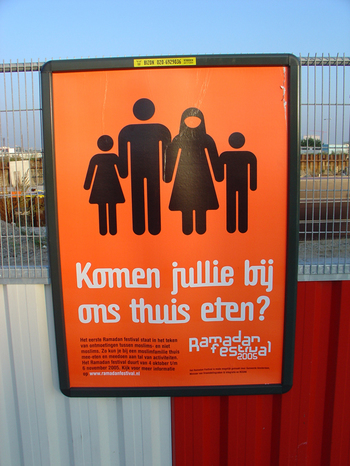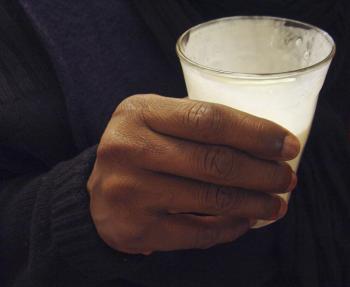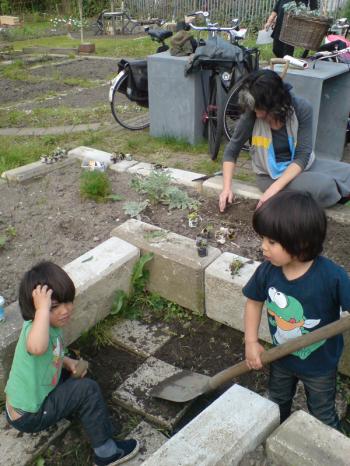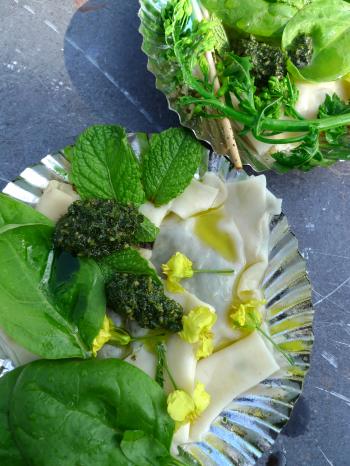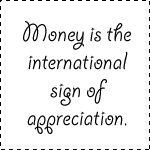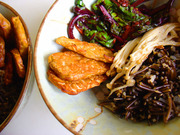Eat while you can, in a few minutes it will be Yom Kippur, the chaotic humanistic Day of Atonement
October 12, 2005
And on Yom Kippur, you fast by eating and drinking absolutely *bubkis. In my search for all things concerning fasting, I came upon this article by the Chabad Folks, titled
Laws and Lore: Eating Before Yom Kippur. Apparently,
It is a **mitzvah to eat and drink heartily on Erev Yom Kippur…
…Do we fast on the ninth? We fast only on the tenth! [How then is this verse to be understood?] It comes to teach us that all who eat and drink on the ninth, and fast on the tenth, are considered by Scripture as if they had fasted on both the ninth and the tenth.
And there you have it, Jewish attitude in a nutshell. This article is permeated with a Curb Your Enthusiasm tone that makes me want to read out loud, scrunch my eyes, shrug my shoulders and wave my hands around saying. “Do we fast on the ninth? No! We fast only on the 10th! (meaning the 10th of Tishrei). Written discussions of Jewish scripture always sound to me like trying to wheedle out of something. It seems to me that the learned gents before us, were always trying to find a way to reward themselves for doing something half-assed. I realise that this characteristic is not unique to Judaism, but it is this half-assism to which I am especially tuned.
(Please read more… )
debra at 14:11 | Comments (6) | post to del.icio.us
Ramadan
October 11, 2005
The Dutch text on this poster inivtes non-muslims to join in a post-sunset dinner with their muslim neighbours during the month of Ramadan. Someone was absolutely using their noggin and Amsterdam is now host to this wonderful initiative called the Ramadan Festival. Muslim families have generously opened their homes for each evening’s break-the-fast Iftar meal in order to allow greater understanding of Islamic culture and faith during the holiday month. There is a slew of activities; lectures, debates (gotta have those lectures and debates!) on the subject of citizenship, culture, emancipation and the role of religion in secular society.
The Ramadan Festival website is informative including prayer times and the hour of each day’s sunset so that you know when you can resume tucking into the goodness! Via the website you can also sign up to receive break-the-fast alerts via text message on your celphone and register for the Iftar dinners. I of course signed up, and am eagerly waiting to hear from the organisation!
This year, Ramadan lasts until the 3rd of November. Get fasting!
http://www.ramadanfestival.nl/
technorati tags: Ramadan, Amsterdam, fasting
debra at 20:20 | Comments (2) | post to del.icio.us
Quandry: non locative comfort food
October 2, 2005
First things first, hats off to Auke Touwslager for inventing the term locative food on the 27th at the Food Design Symposium at the SMCS. For me this term pinpoints the quandry with which I am faced as a 3rd generation ex-pat. (With some folks it’s just baked into the genes.) Locative food is food that communicates location by its very nature. A truffle could communicate Occitania for example, and truffled eggs would seem to me out of place in Hawaii, Mongolia or Ghana, (unless things have changed drastically) but normal (although nonetheless special) in the Cevennes.
If we consider locally grown food to be desirable for our health, the health of the global environment and the health of the local economy, what do we do when we’ve transplanted ourselves to the other end of the planet and get a hunquering for non-local foods? Is eating a Pacific Rim style rice-bowl morally coherent as an inhabitant of the Netherlands? In an ideal world could we make choices about prioritising the import of certain non-local foodstuffs that we all think we need? My non-locative Dutch list would be:
coffee
rice (I have 7 types in my larder at all times, only 2 of these come from Europe)
soybeans and related products (my tofu and tempeh are produced within 2 km from my house, but the beans, where do the beans come from and are they GM?)
Occitanian wine
olive oil
sesame seed products (tahin, sesame oil, seeds)
most seeds and nuts
peanuts (and that Nectar of the Gawds called peanut butter)
According to the list above it seems that being a vegetarian in the Netherlands, would relegate me to eating quality lacking products made by culinarily handicapped hippies. The image above shows a version of my favourite rice-bowl dinner, of which only the beet leaves have been grown locally. Can non-locative comfort food be sustainable. Even as an enthusiastic porkatarian, I eat one heq of a lot of brown rice and soybeans.
debra at 11:40 | Comments (12) | post to del.icio.us
